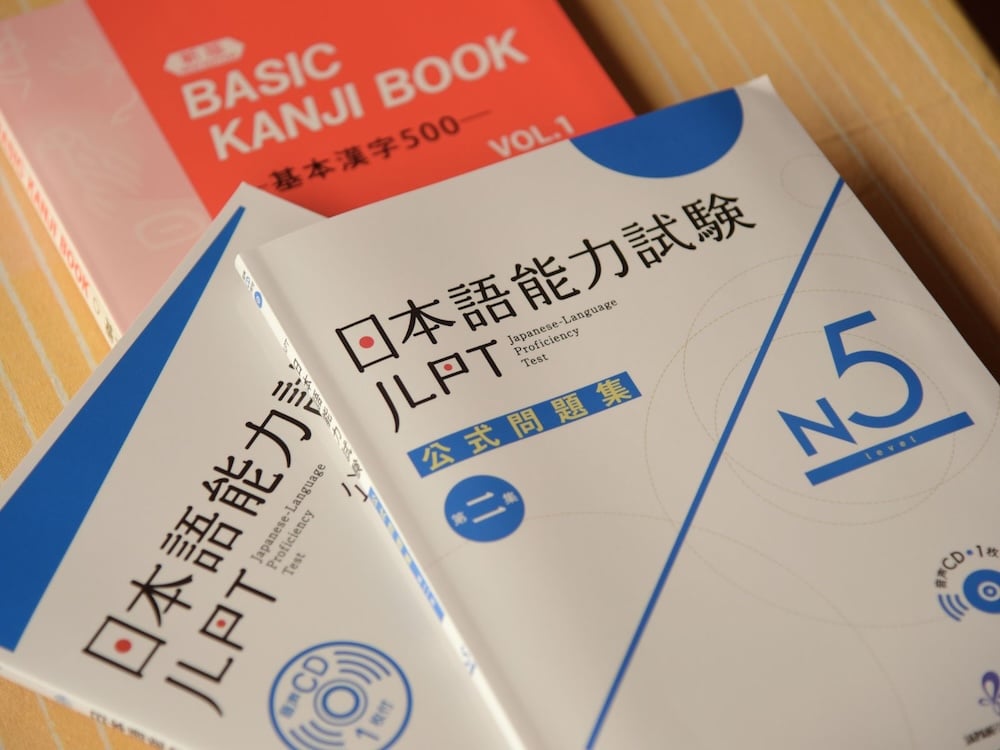
Whether you are residing in Japan or plan to come for study, there are a wide variety of learning options available. The first step is to define your goal for language acquisition regardless of where you plan to study. Are you planning to enter a Japanese university or technical school, find work, pass the Japanese Language Proficiency Test (JLPT) or just have a better experience while living in Japan?
Another point to consider for choosing your language study program is cost and your availability to commit the time for class participation or online work and study. If your future employment and livelihood depends on your language proficiency, then it would make sense to choose a program which is both cost effective and efficient. Efficiency in this case may mean pausing your current activities and concentrating fully on language study.
There are many options for language study so let’s look at a few.
Smartphone Apps & Online Platforms
Easy access to study tools is one of the best points about smartphone apps. They may not be the most comprehensive solution, but they can be a great supplementary resource in conjunction with other materials. For choosing an app that is best for you, think about what you want to practice the most such as vocabulary, reading & listening, grammar, kanji, etc. and choose one that matches that niche. After doing a quick look at several apps, I see that most are not free or at least the good content is not free. Some of the most popular apps are Bunpo, Pimsleur, Human Japanese, Lingodeer, Memrise, WaniKani, etc.
For online platforms, Udemy seems to have more classes available than either Corsera or Skillshare. Udemy usually has sales on classes so it would be good for a sale. YouTube has lots of videos with tips and tricks from others who took the Japanese language exam so it can be worthwhile to check out a few so you don’t repeat the same mistakes. For language learning, you may start off with YouTube, however, most of the channels don’t have an organized and comprehensive curriculum to help you progress from beginner to advanced level.

Language Study in Japan
If your goal is to become fluent in Japanese, I hope you have the opportunity to live and study in Japan. Combining studies and daily life interaction with native speakers should get you off to a good start. Not everyone agrees that classroom learning is the most efficient method, however, it will provide structure to the language learning process and keep you accountable and on track especially if you lack self-discipline. It’s better to be honest with ourselves on that point, even if the truth is hard. Also, language schools will be able to help with obtaining a student visa to study in Japan. Be sure that you select a Japanese language school that is accredited by the Japanese government since only those schools are officially recognized to assist with student visas. Study programs that are under less than three months will not require a student visa.
To meet the requirements for a student visa for the language study programs, you will need to have graduated from a high school or higher educational institution as well as documentation showing your capability to cover living expenses. Please check with the school or the Japanese Ministry of Foreign Affairs for full details on applying for a visa.
Cost for Language Studies
Costs are another one of the major factors that will influence your course of study. Staying in your home country is the most cost-effective method. If your budget will only allow for a short-term study program in Japan, try to get ahead the basics in your home country such as learning hiragana, katakana as well as a jump start on kanji and use your time in Japan for more advanced studies.
One-year programs in Japan typically cost around 1 million yen, though this can vary based on the school’s curriculum, location, and other factors. Be aware that schools often add additional fees for visa processing, entrance fees, materials, facilities, and more. It’s essential to carefully read the fine print to understand all the costs you’ll be responsible for. Additionally, don’t forget to budget for airfare and living expenses while in Japan. When researching online, avoid relying on information that is more than two or three years old, as costs have changed significantly since the end of the COVID-19 pandemic.
I highly recommend studying at a school outside of Tokyo. The costs will be less, and I think the experience will be better. Smaller cities are less crowded and friendlier and still provide good transportation and living options. Don’t be influenced if schools try to entice you with cultural trips and experiences. There are plenty of activities available which are easily accessible without having to pay a premium to attend a school that offers them.
Next Steps After School
It may seem too early to think about the next steps after language school before you have even started, however, this ties back to why you are studying. Do you have a plan to stay in Japan or return to your home country and job hunt following school? Do your workplace skills complement your language skills which will allow you to easily segue into a company role.
It’s not possible to know the future but it does help to map out alternative scenarios so that you can react with confidence rather than just rolling with the changes. Finishing a language program isn’t the end of the language acquisition journey but just one experience along the way.

Japanese Language Proficiency Test (JLPT)
The JLPT (Japanese Language Proficiency Test) is divided into five levels: N1, N2, N3, N4, and N5. N5 is the easiest, while N1 is the most challenging. At the N5 level, you should be able to understand basic conversations related to everyday topics and follow short dialogues spoken at a slow pace. On the other hand, the N1 level requires the ability to read and comprehend complex or abstract texts, such as newspaper editorials or critiques, and to grasp both the structure and content. It’s important to note that the JLPT does not include conversational or writing skills.
The next JLPT (Japanese Language Proficiency Test) will take place on December 1st, both in Japan and internationally. In Japan, the registration deadline is September 12th. For those taking the test abroad, please check the JLPT homepage, as registration dates can vary and are not as straightforward as in Japan. If you miss the December exam, the next opportunity will be in 2025.
You might be wondering whether it’s worth the time and expense to take the N5 or N4 exams, especially since many employers prioritize higher-level language skills, however, it’s important to remember that everyone starts somewhere. These lower-level exams provide valuable practice with the JLPT format and can build your confidence. For those eager to progress quickly, there’s no need to pass the lower levels before attempting the higher ones.
Good luck in your studies and hope they lead to a successful career whether you reside in Japan or your home country.














